Digital Technology and the Future of Veterinary Medicine
Over the last few years, digital disruption has accelerated dramatically, affecting every aspect of the economy, including animal production, health, and welfare. New techniques of data collection, administration, usage, and interchange employing existing and advanced information and communication technologies (ICTs) and innovations are at the heart of digital technology. Modern economies, as well as entire production, management, and governance systems, are being transformed by these technologies. With the emergence of a variety of cutting-edge digital technologies, the world is changing at a rapid pace, with significant potential to improve food production to feed a growing population, promote more environmentally sustainable agricultural practises, and maintain high-quality sanitary standards. Agriculture and cattle, as well as animal health and welfare, are being transformed by digital technologies. And this shift is projected to continue in the coming years, with far-reaching implications for both developed and developing countries' veterinary sectors.
Digital technologies will have a significant impact on the delivery of animal health services and the management of animal health systems. As a result, Veterinary Services must be proactive and adapt to the continuous digital transformation. For the foreseeable future, investing in new technology and equipping present and future veterinary workforces with the essential digital skills and knowledge to stay current and at the forefront of digital innovation in animal health should be a top priority.
- Practice Management
- Telemedicine
- Mobile Technologies and Applications
- Big Data and Big Data Analytics
- Blockchain Applications

Marco Polettini
DVM, Italy
Andreia Freitas
INIAV/REQUIMTE, Portugal
Andreia Freitas
INIAV/REQUIMTE, Portugal
Kedibone Gloria Kgosana
Sefako Makgatho Health Sciences University, South Africa
Nnenna Ugwu
Anglia Ruskin University, United Kingdom
Rubens Dias de Melo Junior
Universidade Federal de Goiás, BrazilSubmit your abstract Today
Important Alert:
X


Title : Analyzing veterinary medicine residues in food: A comprehensive guide
Andreia Freitas, INIAV/REQUIMTE, Portugal
Title : Quantifying changes in facial expression following hot-iron disbudding under procaine hydrochloride and meloxicam treatment in Holstein dairy calves
Nnenna Ugwu, Anglia Ruskin University, United Kingdom
Title : Trypanosoma vivax in and outside cattle blood: Parasitological, molecular, and serological detection, reservoir tissues, histopathological lesions, and vertical transmission evaluation
Rubens Dias de Melo Junior, Universidade Federal de Goiás, Brazil
Title : Characterization of porcine rotaviruses in the Czech Republic
Romana Moutelikova, Veterinary Research Institute, Czech Republic
Title : Determination of Circulating Foot-and-Mouth Disease Virus Serotypes in Kenya (2023)
Hellen Mutua, Foot and Mouth Disease National Reference Laboratories, Kenya
Title : Welfare for Amazonian wild animals
Eliane Cardoso Carvalho Moraes, Jungle Warfare Training Center/ Army, Brazil